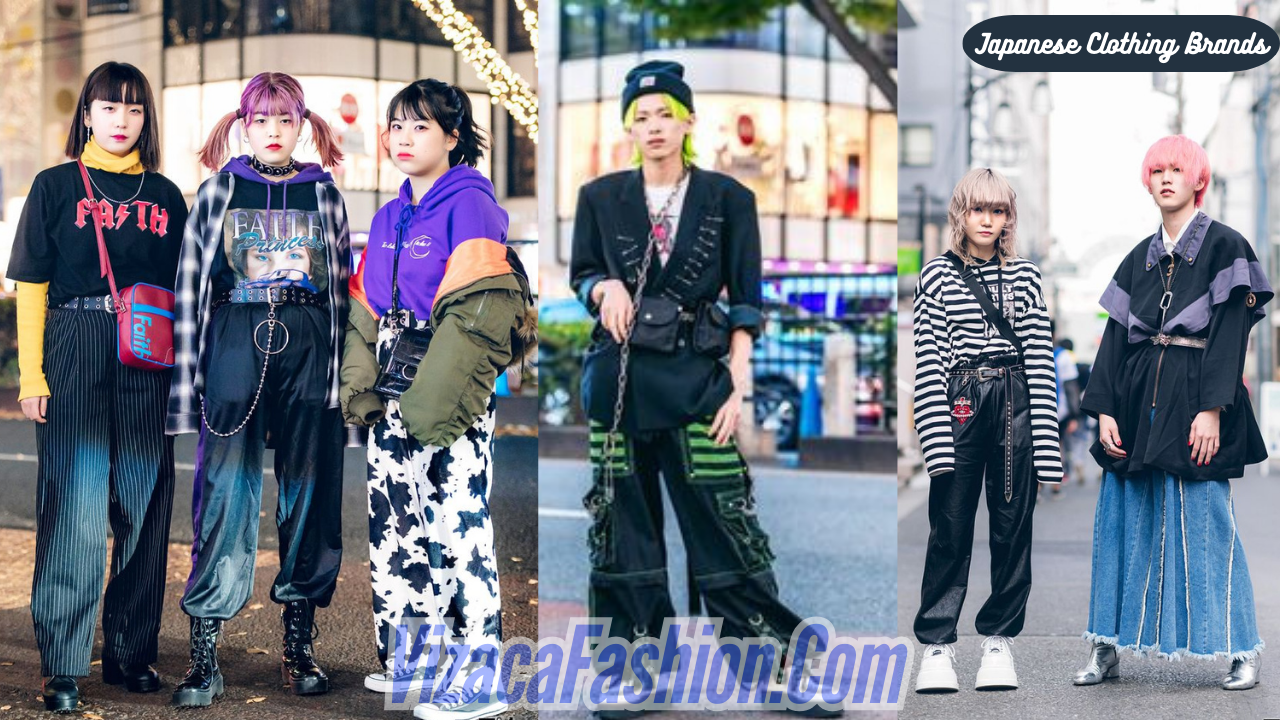Japanese clothing brands have long been celebrated for their innovation, craftsmanship, and unique approach to fashion. From sleek minimalist designs to bold streetwear, Japan’s fashion industry offers something for everyone. This article dives into the world of Japanese clothing brands, shedding light on their evolution, distinctiveness, and cultural impact. Let’s explore how these brands have carved a niche in both local and global markets.
The Evolution of Japanese Fashion
Japan’s fashion journey is deeply rooted in its history and traditions. While traditional attire like kimonos and yukatas remains iconic, the post-war period saw a shift toward Western-inspired styles. Over the decades, Japanese designers began merging their cultural heritage with modern influences, giving rise to some of the most renowned clothing brands in the world. Today, Japanese clothing brands seamlessly blend tradition, innovation, and individuality.
Why Japanese Clothing Brands Stand Out
- Innovative Designs: Japanese designers are known for pushing boundaries. They often mix contrasting elements—minimalism with extravagance, modernity with tradition—to create truly unique pieces.
- High-Quality Craftsmanship: Attention to detail is a hallmark of Japanese fashion. From fabric selection to stitching, every step reflects a commitment to excellence.
- Cultural Influence: Many Japanese clothing brands incorporate elements of traditional Japanese art, nature, and history into their designs, creating a rich cultural narrative.
- Global Appeal: Despite their distinctiveness, Japanese clothing brands have a universal charm, making them popular worldwide.
Top Japanese Clothing Brands to Know
1. Uniqlo: Minimalism Redefined
Uniqlo is perhaps the most internationally recognized Japanese clothing brand. Known for its affordable and versatile basics, Uniqlo’s philosophy centers on simplicity and functionality. From HeatTech fabrics to AIRism technology, the brand consistently innovates to provide comfort and style.
2. Comme des Garçons: Avant-Garde Excellence
Founded by Rei Kawakubo, Comme des Garçons is synonymous with avant-garde fashion. The brand’s unconventional designs and deconstructed silhouettes have made it a favorite among fashion enthusiasts seeking bold statements.
3. A Bathing Ape (BAPE): Pioneering Japanese Streetwear
BAPE is a trailblazer in Japanese streetwear brands. Known for its vibrant camouflage patterns and shark hoodies, BAPE has achieved cult status worldwide. Collaborations with global brands and celebrities have further cemented its iconic status.
4. Issey Miyake: Innovation in Fabric and Form
Issey Miyake’s brand is celebrated for its groundbreaking approach to fabric and design. The signature pleated garments of the Pleats Please line exemplify the brand’s fusion of technology and artistry.
5. Undercover: Streetwear with a Twist
Jun Takahashi’s Undercover bridges the gap between streetwear and high fashion. The brand’s dark, edgy aesthetic is complemented by thought-provoking designs and collaborations with major global brands.
The Influence of Japanese Streetwear Brands
Japanese streetwear brands have played a pivotal role in shaping global street fashion. Rooted in Tokyo’s Harajuku district, the streetwear movement combines rebellious attitudes with a keen eye for detail. Brands like Neighborhood, WTAPS, and Visvim exemplify this fusion of street culture and craftsmanship. These brands prioritize quality and authenticity, setting them apart in the crowded streetwear market.
Sustainability in Japanese Fashion
As sustainability becomes a global priority, Japanese clothing brands are stepping up. Brands like MUJI and Kapital emphasize eco-friendly practices by using sustainable materials and ethical production methods. This commitment to sustainability aligns with Japan’s cultural values of respect for nature and resourcefulness.
Cultural Impact of Japanese Clothing Brands
Japanese clothing brands have had a profound impact on global fashion. Their innovative designs have inspired countless designers and reshaped industry standards. From high fashion runways to everyday streetwear, elements of Japanese fashion are evident worldwide. Furthermore, the global success of these brands has introduced Japanese culture to a broader audience, fostering greater appreciation and understanding.
Conclusion: Why Japanese Clothing Brands Are Worth Exploring
Japanese clothing brands represent the perfect blend of tradition, innovation, and individuality. Whether you’re drawn to minimalist aesthetics, avant-garde designs, or bold streetwear, Japan’s fashion industry offers unparalleled variety and quality. As these brands continue to evolve and influence global trends, they remain a testament to Japan’s creativity and craftsmanship. Embracing Japanese fashion means not only investing in style but also in a rich cultural legacy.


